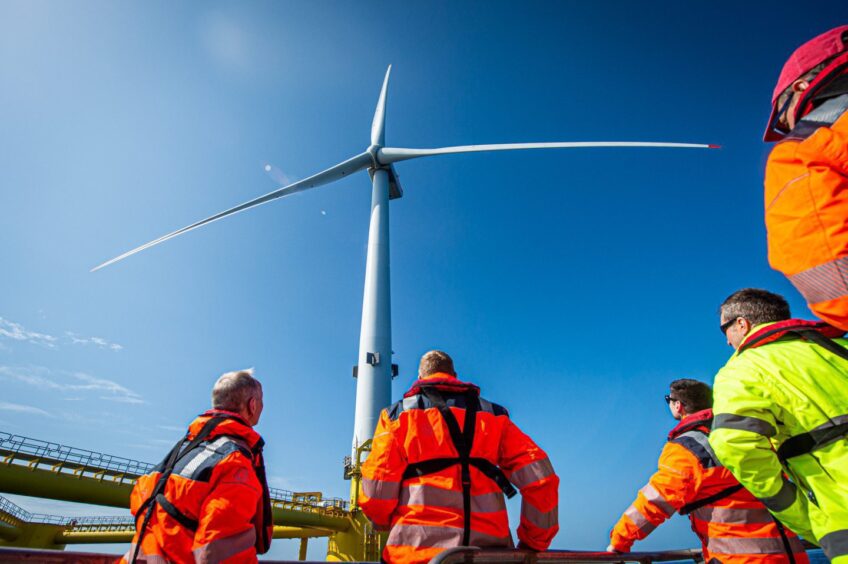North Sea oil and gas skills must be retained to power the transition to cleaner energy, a new report from Offshore Energies UK (OEUK) says.
The OEUK Workforce Insight 2023 study found a “home-grown” transition” using existing skills could see the UK energy workforce swell by 50% to 225,000 people by 2030.
More than 90% of workers employed in oil and gas production and its associated supply chain have skills which are potentially transferrable to wind, carbon capture, utilisation and storage (CCUS), and clean hydrogen production, the report says.
Transition must be ‘effectively managed’
And it calls for the transition away from dependence on oil and gas to be “effectively managed” to help skilled workers “move smoothly into new roles”.
The trade body add it is also “essential that education systems are adapted to future workforce requirements”.
OEUK wants to see “equal value” for technical careers and better long-term funding for apprenticeships.
‘Fair and predictable tax’
The report also calls for a “fair and predictable tax regime” to encourage investment in the North Sea.
Energy companies would invest up to £200 billion in the UK’s renewables sector with “the right incentives and stability”, it says.
In addition, the document highights a need for more collaboration between the energy industry, trade unions, UK and devolved governments, and education providers.
A “dedicated skills co-ordinating body” should be established for each of the devolved UK nations to ensure a continuing pipeline of highly skilled workers, OEUK says.
And the report renews earlier calls for the swift introduction of a “skills passport” to help oil and gas workers transfer more easily to renewables projects.
Clean energy potential ‘enormous’
OEUK says its research shows the opportunity for domestically produced clean energy and new jobs is “enormous”.
But”fiscal stability and an attractive investment environment” are essential, it adds.
Launching the report, OEUK supply chain and people director Katy Heidenreich said the UK industry’s “world-class workforce” was key to providing low-carbon energy and cutting emissions, while also supporting the economy.
“This cannot be a debate about oil and gas versus renewables,” Ms Heidenreich said.
She added “We need to support both oil and gas and renewable energy since they are increasingly the remit of the same companies.
“It needs to be a conversation about unlocking the full potential of our people.
“Our research shows we need more action to address skill shortages and to recognise the huge value in the existing workforce.”



Conversation